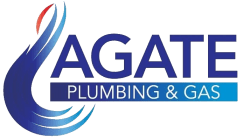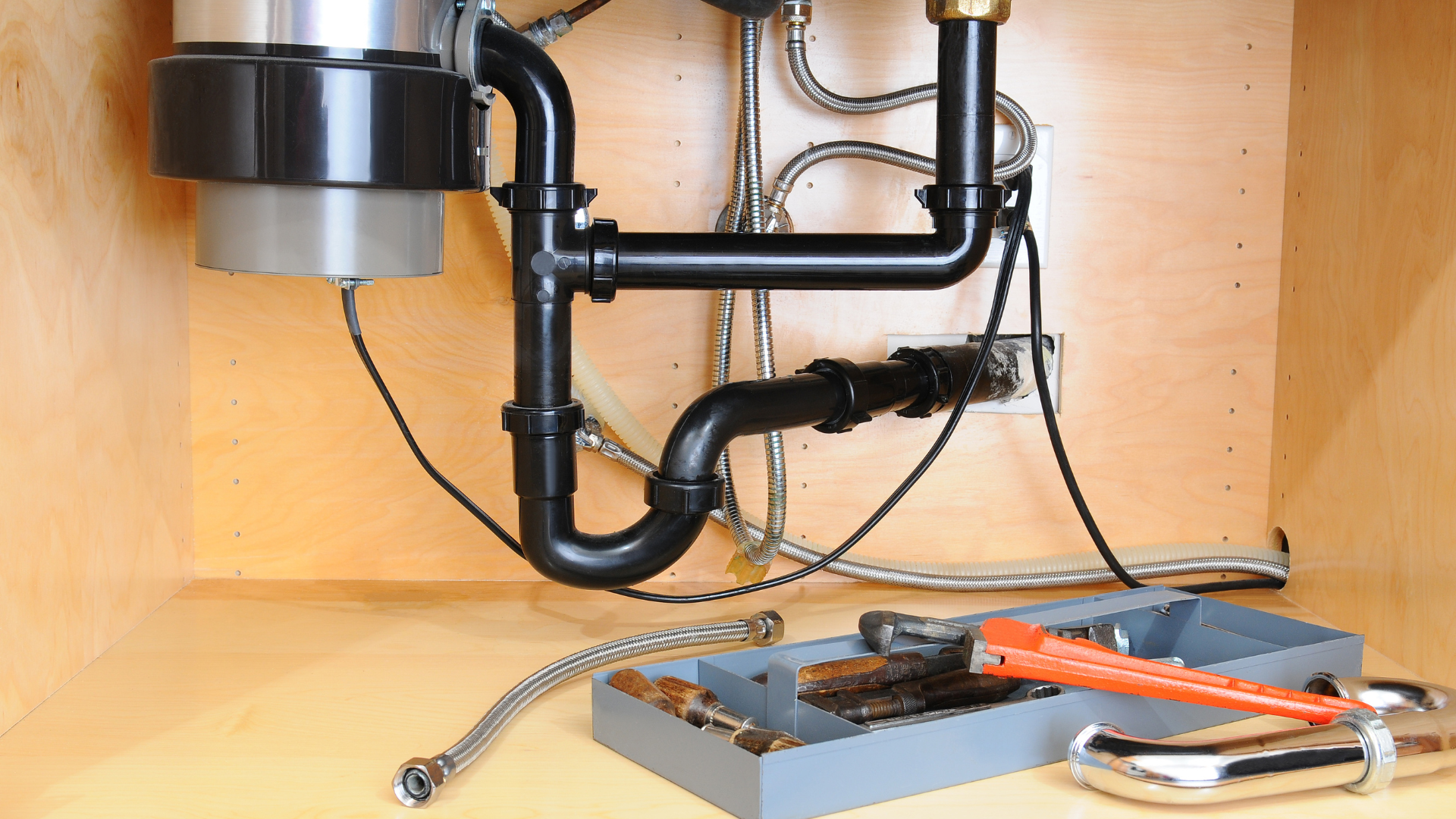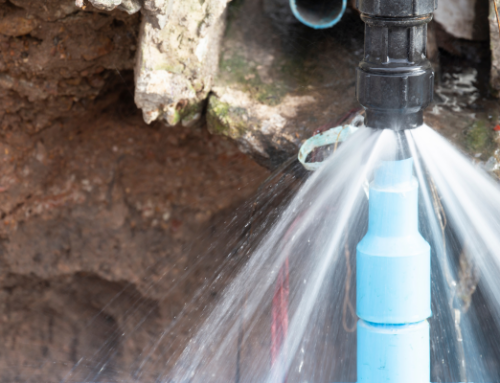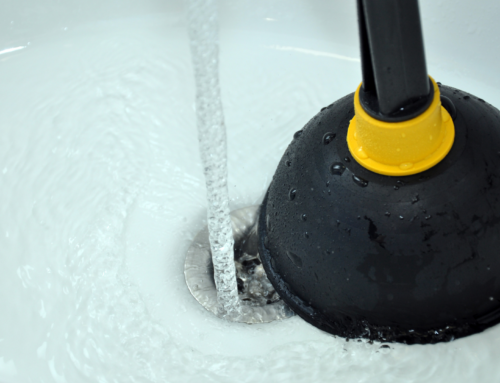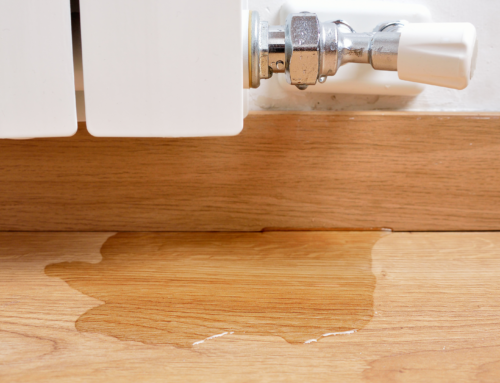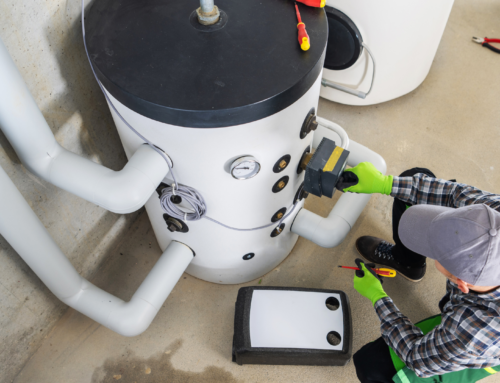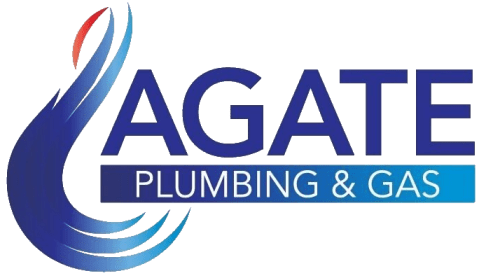Balancing Convenience with Risk: Flexi Hoses Under Kitchen Sinks
Who doesn’t love the convenience one experiences with flexibility? This feeling extends to the world of plumbing, too. Whether in residential homes or commercial buildings, flexi hoses offer a flexible and easy-to-install alternative to traditional rigid piping. Join Agate Plumbing & Gas and learn about the versatility and limits of flexi hoses.
Flexi Hoses: A Modern Plumbing Marvel?
Flexi hoses, also known as flexible hoses or flexible connectors, have become popular in modern plumbing systems, especially under kitchen sinks. They are a type of plumbing hose designed to connect water supply lines to various fixtures such as faucets, toilets, and appliances. Unlike traditional rigid pipes, flexi hoses are made from flexible materials, typically rubber or synthetic polymers, often encased in a stainless steel or braided polymer exterior for added durability and resistance.
These hoses, typically made of rubber or stainless steel, offer flexibility and ease of installation, revolutionising the way plumbing connections are made. However, like any other technology, they have advantages and disadvantages, particularly when installed in critical areas such as under kitchen sinks. While they can be a valuable addition to modern plumbing, it’s essential to weigh the advantages against the potential risks and take appropriate precautions to minimise the likelihood of costly failures. Let’s take a closer look.
The Advantages
- Flexibility and Ease of Installation: One of the most significant advantages of flexi hoses is their flexibility, allowing for easy installation even in tight spaces. Traditional rigid pipes often require precise measurements and cutting, whereas flexi hoses can be bent and manoeuvred into place, saving time and effort during installation.
- Reduced Risk of Leaks: Flexi hoses typically have fewer connection points compared to traditional plumbing systems, which means fewer opportunities for leaks to occur. The solid connection between the hose and the fixture minimises the risk of water seepage, reducing the likelihood of water damage to the surrounding area.
- Resistance to Corrosion: Stainless steel flexi hoses are highly resistant to corrosion, making them ideal for use in environments with high humidity or exposure to water. This resistance ensures longevity and durability, reducing the need for frequent replacements and maintenance.
- Cost-Effectiveness: Flexi hoses can often be more cost effective than traditional plumbing systems. Their ease of installation can result in lower labour costs, and their durability can translate to long-term savings by reducing the need for repairs and replacements.
The Disadvantages
- Risk of Bursting: Perhaps the most significant disadvantage of flexi hoses is the risk of bursting, especially if they are not installed or maintained correctly. Flexi hoses are typically designed to withstand a certain amount of pressure, but over time, wear and tear, as well as exposure to heat and chemicals, can weaken the material, increasing the risk of a rupture.
- Limited Lifespan: While flexi hoses are durable, they may have a shorter lifespan compared to rigid pipes. Constant exposure to water and fluctuating temperatures can accelerate wear and deterioration, eventually leading to leaks or bursts. Regular inspection and replacement may be necessary to prevent unexpected failures.
- Maintenance Challenges: Unlike rigid pipes, flexi hoses may be more challenging to inspect for signs of wear and damage. Their flexible nature can make it difficult to detect leaks or weaknesses, especially in concealed areas such as under kitchen sinks. Regular maintenance and inspection by qualified professionals like Agate Plumbing & Gas are essential to ensure the integrity of the plumbing system.
- Compatibility Issues: Flexi hoses may not be compatible with all plumbing systems or fixtures. Improper sizing or installation can lead to leaks, reduced water flow, or other plumbing issues. It’s crucial to ensure that the flexi hoses used are compatible with the existing plumbing infrastructure and meet relevant standards and regulations.
Mitigating Risks
Mitigating the disadvantages of flexi hoses under kitchen sinks involves a combination of proper installation, regular maintenance, and adherence to best practices. Here are some steps to address the potential issues and ensure the longevity of your flexi hose:
- Proper Installation: Choose high-quality flexi hoses made from durable materials such as stainless steel. Avoid cheaper alternatives that may have inferior construction. Ensure the flexi hose is the correct length and diameter for your specific installation. Avoid excessive bending or stretching, which can weaken the hose. Use hoses rated for the pressure of your plumbing system to prevent bursting due to high water pressure. Use appropriate fittings and connectors to secure the hose tightly without over-tightening, which can damage the hose or the connectors. Apply thread seal tape (Teflon tape) on threaded connections to prevent leaks.
- Regular Maintenance: Regularly inspect the flexi hose for signs of wear, such as fraying, kinks, or bulging. Pay special attention to areas near connections and bends. Check for any signs of moisture or water leakage around the hose and connections. Replace flexi hoses periodically, even if no visible damage is present. Manufacturers often recommend replacement every 5-10 years, but this can vary based on usage and environmental conditions. Ensure the hose is not exposed to excessive heat from nearby appliances or hot water pipes, which can accelerate deterioration and keep the hose away from harsh chemicals that can degrade the materials.
- Best Practices: Ensure the area under the sink is well-ventilated to prevent moisture buildup, which can accelerate hose deterioration. Make sure the hose and connections are accessible for easy inspection and maintenance. Install pressure-reducing valves if your plumbing system has high water pressure to minimise the risk of hose bursts. Consider using burst-proof or reinforced flexi hoses designed to withstand higher pressure and provide an added layer of security against ruptures. Engage licensed plumbers for the installation and maintenance of flexi hoses to ensure they are correctly fitted and comply with local plumbing codes.
Embrace the Advantages with Agate
If you’re looking for someone to install or maintain your flexi hoses, look no further than Agate Plumbing & Gas. Our licensed professionals ensure that every installation is precise, using only high-quality, durable flexi hoses that meet industry standards. With regular maintenance services, we proactively inspect and replace hoses to prevent leaks and bursts, safeguarding your home from potential water damage. Contact us today and experience the peace of mind provided by our plumbing experts.
